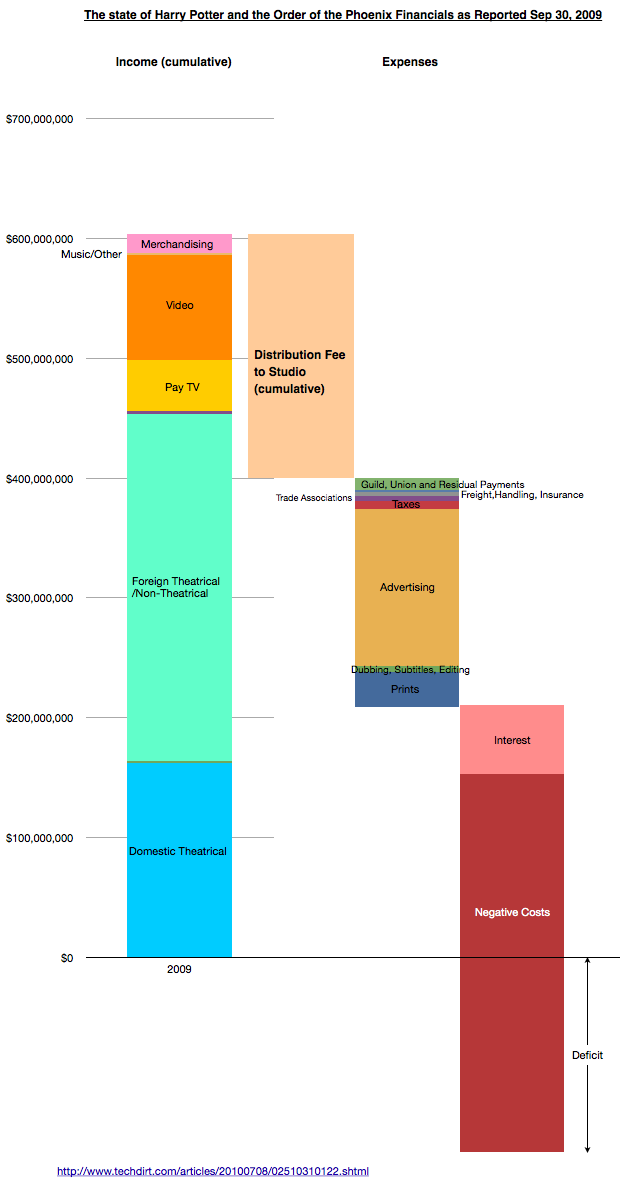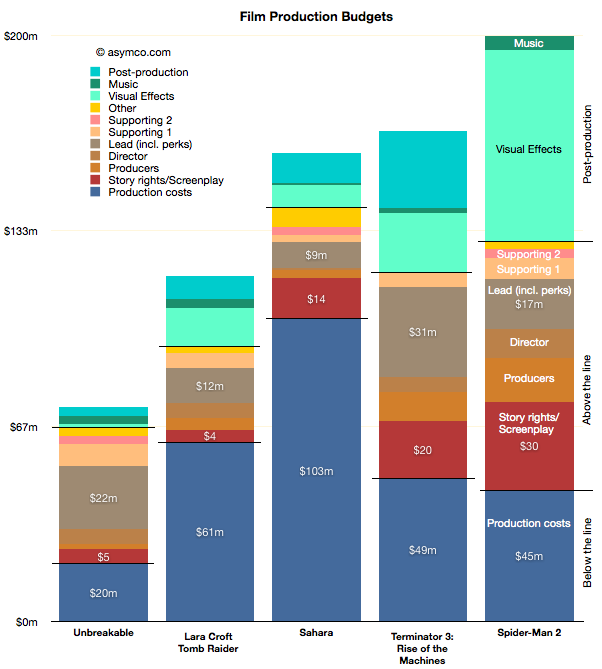Ever since “Butcher, Baker” became a project of interest to Hollywood, I’ve been on a crash course to better understand the industry. One argument made to keep creative talent costs in check is that most movies lose money. Even successful ones.
But that bit of myth-making is beginning to wear thin. Or at least get a little rough around the edges. Horace Dediu of Asymco has two back-to-back podcasts on what’s called “Hollywood Accounting,” also known as creative accounting. The latest is called “Negative Costs” (podcast). The original is called “Below the (Belt)line” (podcast).
Both are worth a listen, especially if this kind of creativity intrigues you.
The podcasts aside, we can summarize how it all works. Hollywood, as it turns out, is a fee-based industry. Those fees are structured up front to ensure a profit. As NPR’s Planet Money (Jacob Goldstein) shows, there’s a twisted logic here that bears close resemblance to carnival games:
As a case study, [Hollywood financial analyst Edward Jay Epstein] walks us through the numbers for “Gone In 60 Seconds.” (It starred Angelina Jolie and Nicolas Cage. They stole cars. Don’t pretend like you don’t remember it.)
The movie grossed $240 million at the box office. And, after you take out all the costs and fees and everything associated with the movie, it lost $212 million.
This is the part of Hollywood accounting that is, essentially, fiction. Disney, which produced the movie, did not lose that money.
Each movie is set up as its own corporation. So what “lost money” on the picture is that corporation — Gone In 60 Seconds, Inc., or whatever it was called.
And Gone In 60 Seconds, Inc. pays all these fees to Disney and everyone else connected to the movie. And the fees, Epstein says, are really where the money’s at.
Get that? There’s lots of money moving around; now you see it, now you don’t. Here’s what that carnival game looks like in graphic form (credit, Horace Dediu). Note how “Distribution Fee to Studio” is its own (profit) column.

FILM PRODUCTION BUDGETS
The other half of the accounting process is film budgets. As an author, lately I have been particularly interested in these numbers (story). For instance, I now know there “is no net,” so won’t count on a percentage of the net for anything but show-and-tell. (Although our option agreement on Butcher, Baker, has just such a clause.)
Based on Horace Dediu’s numbers for a limited dataset, the author portion of film budgets runs between 7 and 15 percent of total budget. I am guessing (educated) that the screenplay eats up most of that; no surprise, then, that “Frozen Ground” director Scott Walker is also credited with the screenplay. With a $27M budget, Walker probably got a cool million or so for the screenplay alone (and that’s a conservative estimate). Bloody well done, Scott.
Oh, and by the way, TechDirt reports that Hollywood Accounting is… um… losing in the courts. I don’t see why (nod, nod, wink, wink)… It was a fiction to begin with.

1 thought on “How Movies Lose Money”